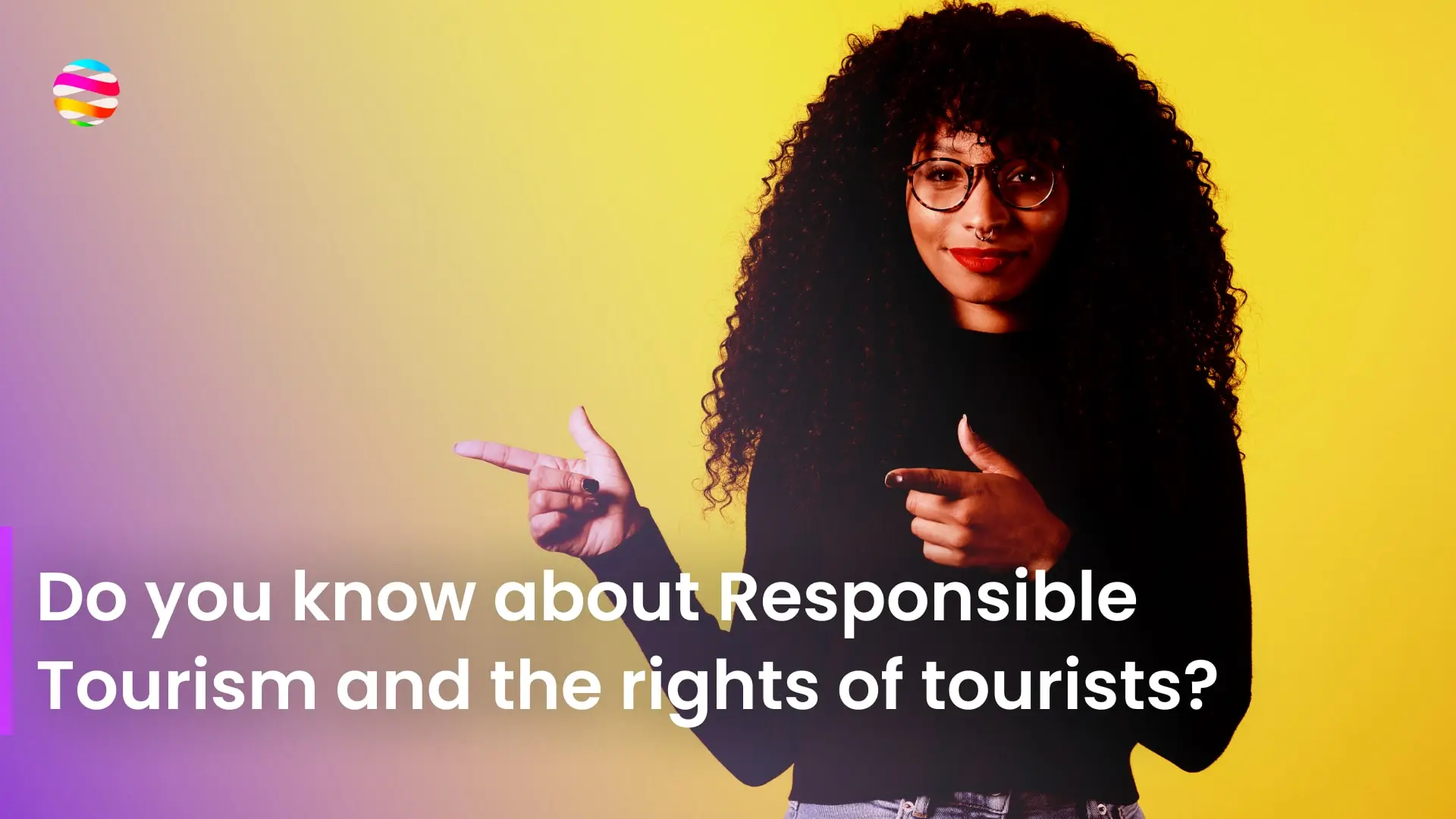Travellers now prefer experiential travel over the traditional way of package holidays. They are more focused on exploring people and their cultures wherever they visit. Travellers now are looking for meaningful and deeper immersive experiences. All around the world when businesses started insisting on sustainability the world of tourism wasn’t left behind either.
Tourists now insist on sustainability too. They are becoming aware of the impact of their actions on the society, environment and people of the destination country or place. Thus, as you might have guessed, responsible tourism involves responsible behaviour on the part of tourists and companies providing travel services.
People are not only becoming aware of responsible tourism but it is being considered a necessary aspect of travel and tourism. Research is being conducted and its scope is being assessed regularly. So, its definition and understanding are poorly understood.
Thus, we thought of beginning with its definition:
What is responsible tourism?
-
The world is blessed with spectacular sights and nature’s delights. A lifetime isn’t enough to see and experience its beauty. But as people began to travel and explore more, gradually local communities and resources got impacted.
-
Thus, a strong campaign began running where advocates of travel began spreading a message about protecting the environment, wildlife, and people/ communities that inhabit a place.
-
Thus, the concept of responsible tourism emerged. It speaks about respecting the travel destination’s environment, community and culture.
-
It conveys a message to travellers, travel agents, and destination management companies that they need to protect the local communities and the heritage sites of the community.
-
All in all, it means one should protect, not harm the place and people one travels to. One should reduce the adverse effect of tourism on the social, environmental and economic aspects of the community.
-
Harold Goodwin defines Responsible Tourism as “making better places for people to live in and better places for people to visit.” It needs the government, local population, tourists, operators providing travel services and hoteliers to act on making tourism sustainable.
-
Since tourism is rising, there is a possibility of damaging the environment. But making choices that support the community is called responsible tourism. Tourists and tourism companies providing travel services should respect the environment, and improve rather than damage the quality of life for the local community.
Why is responsible tourism important?
-
Tourists become part of the local community. They begin to connect and care for them. Thus, they feel responsible for protecting their welfare and well-being.
-
It protects and promotes the local heritage and culture. Tourists begin to respect local culture and heritage.
-
Responsible tourism minimizes the adverse impact of tourism on economic, environmental and cultural aspects of the community.
-
Sustainable tourism is profitable for the local population as it preserves local culture and nature. But excessive tourism is bound to damage these exclusive destinations. Sustainable tourism is different from responsible tourism.
-
Sustainability is the goal, which can be reached only when we all practise responsible tourism. We all should come together to take responsibility. It is about everyone’s efforts to make tourism sustainable, and how we tackle specific challenges that stop us from achieving the goal.
Now that we know the meaning of responsible tourism and its importance, let us study its growth.
Growth of responsible tourism:
-
The concept has become an accepted reality and an intrinsic part of tourism. The pandemic compelled travelers to think how their travel plans and visiting various destinations impacts various communities and ecosystems.
-
A conscious traveler can make a big difference to the local community by uplifting their living standard, and economy. It benefits the country as a whole.
-
Offbeat travel means you don’t visit the usual tourist spots. You visit the unknown destinations that are real gems. This kind of travel is getting popular.
-
Offbeat travel results in lower carbon footprint at popular tourist destinations. Tourists start reviving the local communities and encouraging small businesses like handicraft, art, café, hotels, homestays, etc.
-
The term ‘Responsible Tourism’ was first coined at the World Summit on Sustainable Development in Cape Town in 2002.
-
It was mentioned in the Cape Town Declaration and has received worldwide acceptance.
-
The term was adopted in 2007 by the World Travel market.
-
20 years hence the Cape Town Declaration had to be updated.
-
The aim of Responsible Tourism was to make tourism better. Now it is widened to take care of issues that impact local communities, and tourists. Some of those issues are animal welfare and child protection.
-
Responsible tourism is about realizing that one day our children will travel to the same places as we did. They will find the same place well maintained years hence we visited it.
-
It is a desire to make the same places and traveling better for our children and generations to come.
We have spoken at length about our responsibilities but we also need to know travelers’ rights when they visit other countries.
The General Assembly of the World Tourism Organization held its sixth session at Sofia defined these rights for tourists:
17th to 26th September 1985
Article XIII
Tourists should get affordable free access to tourist destinations, within the country and outside the country as well. They should follow the existing rules and regulations, limitations while they get the freedom to move in places of transit and sojourn.
While traveling to different tourist sites and places, throughout the transit and sojourn, they should get access to:
1. Objective, precise and complete information on the existing facilities and conditions shared with them by official tourism bodies and people who offer tourism services.
2. Safety and security of their belongings and protection of consumer rights.
3. Public hygiene with regards to accommodation, catering and transport should be provided.
4. Also, information with regards to communicable diseases, accidents and ready access to health services.
5. Quick and efficient public communications throughout internal and external travel.
6. Administrative, legal procedures and guarantee about protection of their rights.
7. Practise their own religion and use the available facilities for that objective
Today travel has become so easy and convenient thus, many people take to travelling to explore different destinations. Though we cannot ignore the impact on the local tourist destinations, communities there and the economy too.
Thus, we need to be aware of our rights as travellers and know more about responsible tourism. The world is changing rapidly and we cannot be ignored when we decide to travel within our country or outside it.
ETOS always believes that tour operators and travel agents can make their customers aware of these aspects and contribute tremendously to the travel industry.
To facilitate their businesses ETOS offers travel technology solutions and travel management software https://www.etosglobal.com/brochures. Our travel CRM software https://www.etosglobal.com/request_demos helps to keep a track of the customer database and specific customer requirements. This can lead to creating a customized travel plan for customers.
Get in touch with our team https://www.etosglobal.com/request_demos to know more about our travel technology solutions.












